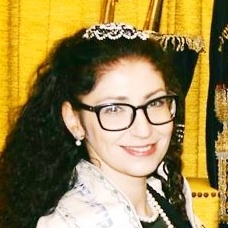
Parshot/Festivals

We need to bring balance to our lives
Rabbi Julia Margolis
All of us now, after the exodus from Egypt, are on the way to Mount Sinai. We are counting the days, as the medieval philosopher and Torah scholar Rambam said, waiting with a patience and a sinking heart for the great event of receiving the Torah.
This week’s parsha, Shemini, the third in Leviticus, has kashrut as one of its themes.Disputes over dietary laws have always existed in Judaism. Rambam believes that the idea behind kashrut is the preservation of health: “Kosher food is good for the soul.”
But the 15th-century philosopher, Rabbi Isaac Arama, disagrees: “Dietary laws were not, as some believe, dictated by therapeutic considerations. G-d forbid!”.
Opposing views are an essential part of our religion, and we need to develop a tolerance for this. In this week’s portion, G-d gives us instructions and specific tasks in a balanced way.The balance is observed everywhere, even in the animals placed in Noah’s ark in pairs, ensuring that there’s a male and female representative.
Nature in its infinite wisdom dictates this balance of polar opposites. Whether hot and cold, light and dark or male and female, G-d never implies that the male species is more important than the female, but rather, that one simply cannot exist without the other.
The appearance of a female rabbi in South Africa is a sign of change in our world. If we resist such change, we make “hot more important than cold”. How could this be? We as a community would do well to find a balance and to understand nature’s laws and embrace them as our own. Nature’s laws are, after all, far higher than those of humanity.
Once we’re sufficiently open-minded to give each light and dark its full sway, only then will we see the rainbow currently hidden from sight.
It’s often up to each individual to cultivate this balance within. The outside world will give us clues as to how to do so. By “outside world” I mean that life, or better yet, G-d, gives us signs in the form of challenges.
Say, for example, we’re apprehensive about a specific task. We need to look within at the apprehension. That’s our clue; that’s our weakness or imbalance. It suggests that perhaps we need to work on our confidence.
So, in such a case (of fear versus confidence), we are being shown that we’re polarised by this fear and that if we do not find a balance (cultivate more confidence), we will end up suffering the consequences of our ignorance, such as inaction.
We need to find a balance of male and female roles and responsibilities and a balance of love and firmness for our children, and wherever else the universe suggests to us that we are out of kilter. Then we’ll be able to nurture our souls and navigate a clear, safe path towards our destination.




